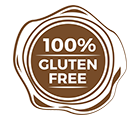Luteolin, a naturally occurring flavonoid found in fruits, vegetables, and medicinal herbs, is recognized for its anticancer properties. It inhibits cancer cell growth and promotes apoptosis, making it a promising compound for preventing cancers like breast, prostate, and colon cancer.
What is Luteolin?
Present in foods such as celery, parsley, and broccoli, luteolin has been used in traditional Chinese medicine to treat ailments like hypertension. Recent studies focus on its ability to inhibit cancer cell growth and induce cell death through apoptosis, providing strong evidence of its anticancer potential.
Anticancer Properties
Research shows that luteolin is effective against several cancers, including:
- Breast Cancer: Luteolin reduces tumor size and viability while blocking critical pathways like EGFR and PI3K/Akt, which support cancer cell survival.
- Colon Cancer: This flavonoid’s antioxidant and anti-inflammatory effects suppress enzymes such as COX-2 and MMP-9, which play a role in cancer progression.
- Prostate Cancer: Luteolin limits cancer cell invasiveness, promotes apoptosis, and downregulates key proteins like VEGF and Akt, which fuel cancer growth.
Mechanisms of Action
This compound fights cancer through multiple mechanisms:
- It prevents cell proliferation by inhibiting pathways like MAPK and PI3K/Akt.
- It triggers cell death by activating caspases and increasing pro-apoptotic proteins such as Bax.
- It reduces inflammation by suppressing COX-2 and nitric oxide synthase (iNOS), both of which are elevated in cancer cells.
The Future of Luteolin in Cancer Treatment
While most research has focused on in vitro and animal studies, luteolin’s natural origin and safety profile make it a promising candidate for cancer prevention. Ongoing clinical trials will explore its full therapeutic potential and optimal dosages for human treatment.
Boost your intake of this beneficial compound by including vegetables like celery and parsley in your diet.





